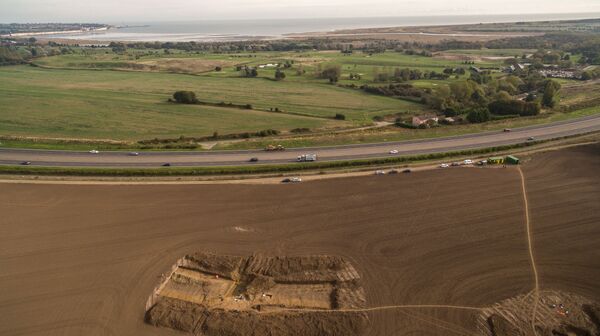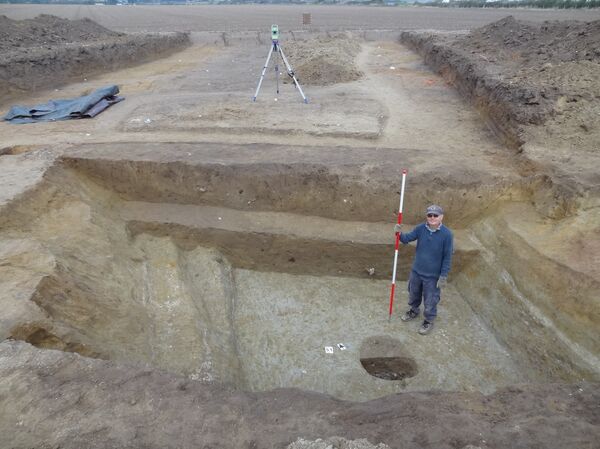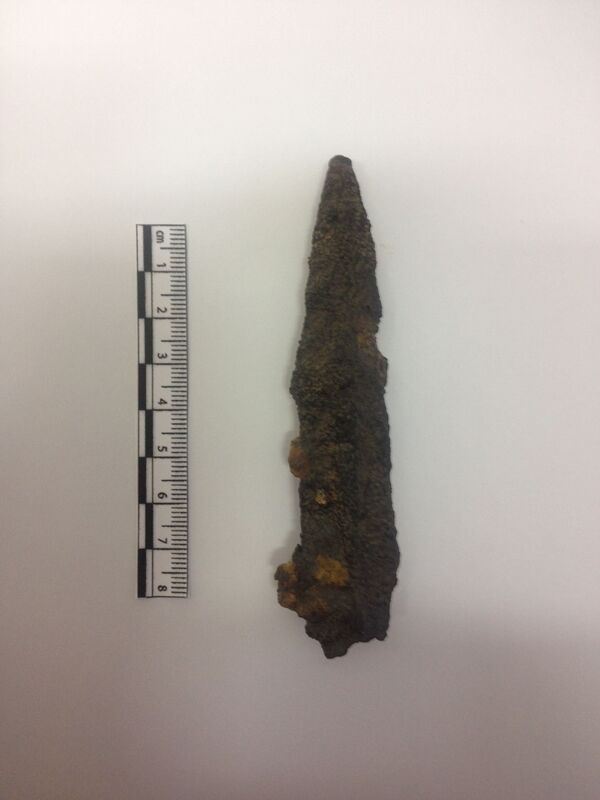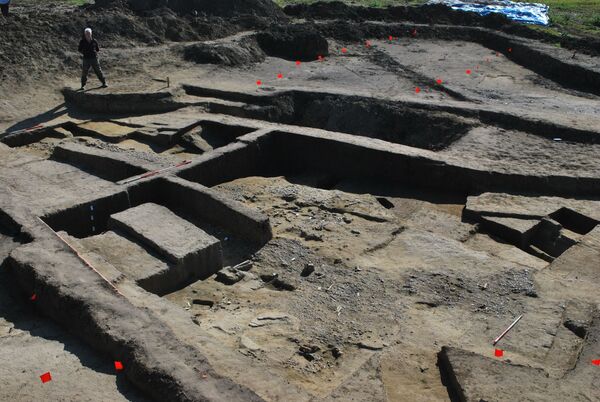A team of archaeologists from the University of Leicester have unearthed what they claim is the first evidence of Julius Caesar's invasion of Britain.
The archaeologists referred to their excavations carried out at Ebbsfleet, a hamlet on the southern coast of the Isle of Thanet in Southern England, which they said confirmed their theory that Caesar's fleet landed at Thanet Island Bay in the County of Kent, located about 70 miles (112 kilometers) southeast of London.
The Telegraph cited Dr. Andrew Fitzpatrick, a research associate from the University of Leicester's School of Archaeology and Ancient History as saying that Caesar's account of his landing in 54 BC is in line with the location of the Pegwell Bay site.

"Caesar describes how the ships were left at anchor at an even and open shore and how they were damaged by a great storm. This description is consistent with Pegwell Bay, which today is the largest bay on the east Kent coast and is open and flat," Fitzpatrick said.

The archaeologists managed to discover an array of Roman weapons, including a javelin, and other artifacts at Ebbsfleet overlooking Pegwell Bay.
It prompted them to suggest that "the site at Ebbsfleet was once a Roman base of 1st century BC date," according to The Telegraph.

Due to the fact that the Isle of Thanet was separated from the mainland by the Wanstum Channel until the Middle Ages, it was never previously seen as Caesar's possible landing in Britain.


